Trending
Opinion: How will Project 2025 impact game developers?
The Heritage Foundation's manifesto for the possible next administration could do great harm to many, including large portions of the game development community.
Rosstin was always a hardcore gamer, but taking a dive into the world of mobile games changed his outlook on casual gaming.

I spent last week giving mobile and social gaming a bit of a black eye with this article about Tamagotchi vs FarmVille-- this week I'm going to tell you why I really do love mobile gaming.
I am a hardcore gamer. I grew up playing NES Megaman, pouring hours into Magic: The Gathering, and writing detailed GameFAQs walkthroughs for WoW. I've run 3.5 DnD campaigns, become part of the interactive fiction community, and fallen in love with Demon and Dark Souls. At this point I've probably spent more hours gaming than I have sleeping.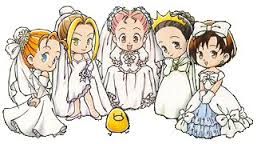
I... can't... choose...
However, I also have many of the qualities of what we call a "casual" gamer. I adore watching virtual pets grow up, mooning over potential RPG wives, and making sure my lime green boots of speed match my hunting cape.
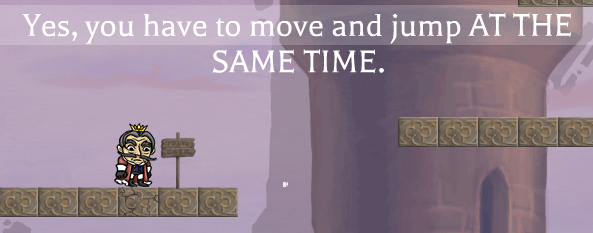
What? You haven't been playing platformers since you were 5?
A few months ago, during a playtest for King's Ascent, I realized I was way out of touch with modern gaming. An older gentleman was trying to play our game. He kept touching the screen. When I finally got him to use the keyboard, he was offended to learn that our game had more than one button. "I have to run AND jump? At the same time? Well I never!" he said, walking away in a huff. While I had been sitting in my apartment playing Megaman and tumblebuffing in Dark Souls, gaming had been marching boldly forward. Directional pads and buttons were losing vogue, being replaced by more intuitive touchscreen interfaces.
I booted up my iPhone and did something I had never done before. I went into the app store. I was greeted by a plethora of games I had never heard about: Candy Crush, Puzzles and Dragons, Monster Story. Searching their titles on GameFAQs brought up scant information. I started asking my friends what they were playing on their phones, and my friend Evan pointed me towards DragonVale. I figured if I had to play a mobile game it may as well be one with dragons in it. I ended up downloading all the dragon-raising games I could find, becoming a fevered expert on the intricacies of breeding the scaly reptiles.
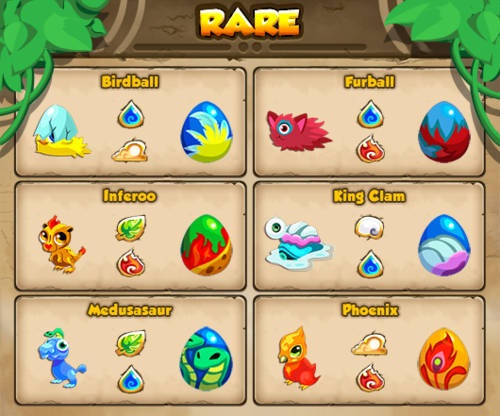
Trying to get these little buggers is like playing the slots.
Most of these FarmVille-esque monster breeding games had very little in the way of what I would consider gameplay or even strategy. If you haven't played a dragon-breeding simulation, I'll lay it out for you. You start up the app, and are greeted by a tutorial that guides you through purchasing a few habitats and hatching eggs of different elements. You're then introduced to the principle of mixing elemental monsters in a breeding process to produce higher-value hybrid creatures. The tutorial usually supplies you with a stock of gems or gold (a premium currency) and encourages you to use them to speed up the time-locked building/breeding/hatching processes (thereby introducing you to the pay-to-win angle).
I've been cynical of freemium games from the beginning. Where in the world is the fun in a game where you can't lose, where the primary game mechanic is waiting? By playing intelligently and optimally, the most you can do is decrease the amount of time it takes you to reach your next goal by a few hours. You might as well just take a nap and save yourself the trouble.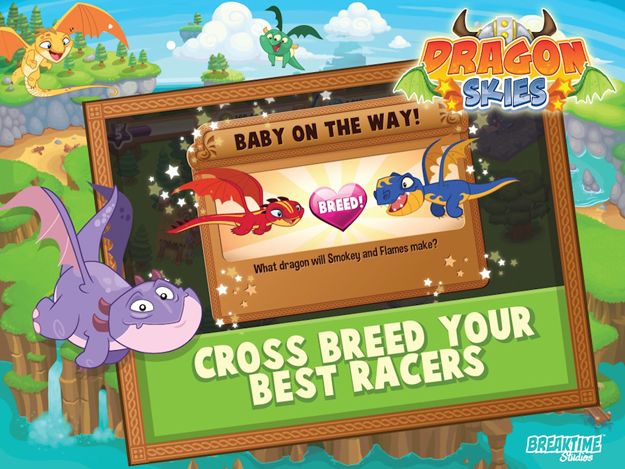
Hot dragon-on-dragon action? Sign me up!
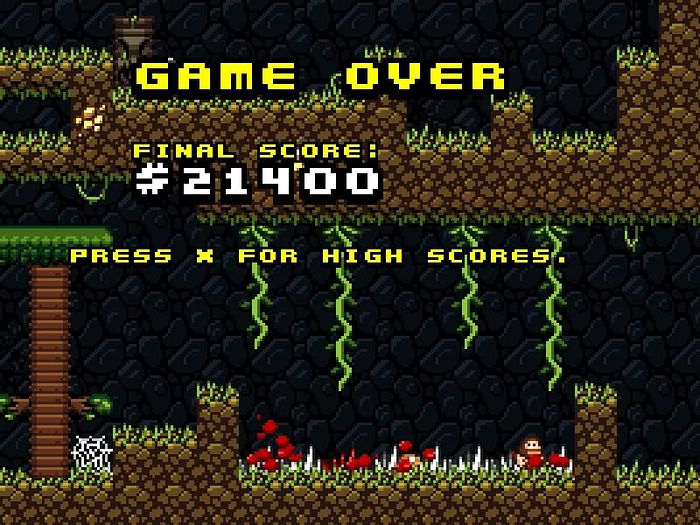
Spelunky? More like SPIKElunky, am I right?
What's more, these games were far better suited to my daily gaming needs than something like Dungeon Crawl or Spelunky or even Animal Crossing. Instead of cumbersome face buttons, these mobile games were point-and-click, requiring neither twitch skills nor precision aiming. I could whip out my phone and be playing Monster Story in a moment. Each transaction of coin-collecting, crop farming, or breeding took a few seconds each. If my bus stop came sooner than I expected, I could pocket the game without fear of running my avatar into a row of spikes. Mobile games made sense.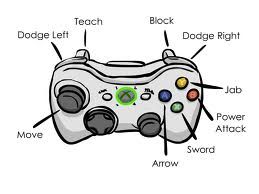
Design challenge: do all of this with one button.
What to do with this information? I began redesigning the stock of ideas in my head. Did my games really need so many buttons, or could I get away with one? Was there any reason to force gamers to make precise movements in this game? How could I reduce these gameplay sections down to 30-second chunks and still retain an element of skill? Mobile games had given me a new perspective on minimalism in design.
If you're a hardcore gamer, do yourself a favor and give mobile games a chance. Tapping away at your dragons in DragonVale may not seem like your idea of epic gaming, but it's a way more efficient coffee break than getting stuck in the Dungeons of Dredmor and missing your bus stop.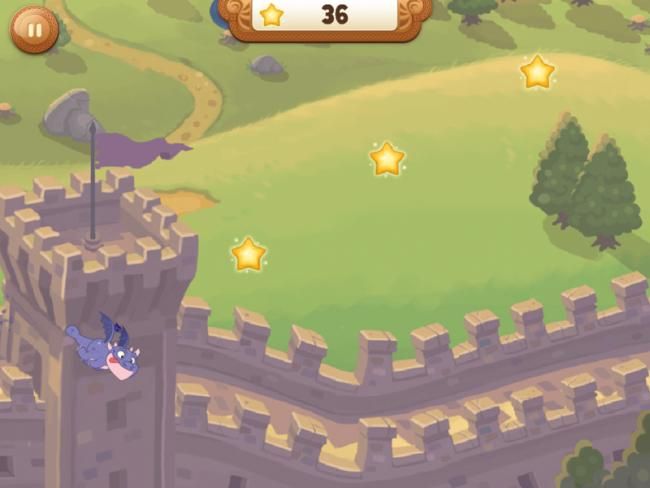
This mini-game is pretty complex for only using one button.
The best mobile games can be played for tiny chunks of time.
Your simplest transactions, such as coin-collecting or planting a crop, should take less than 5 seconds.
If you have gameplay segments, try not to use more than one button. Actions can be contextual.
Typical action segments should last for less than a minute and autopause when a phone is put away.
Giving your player some simple strategic choices gives them something to think about when they're not playing the game. Do I want to try for a low-probability 3-element monster, or should I open up a new quest by breeding a 2-element first?
Rosstin Murphy is a game producer who wrote a 50-page FAQ on how to raise Chao when he was 15. He's getting ready to release a game called King's Ascent and looking for a real job!
Read more about:
BlogsYou May Also Like